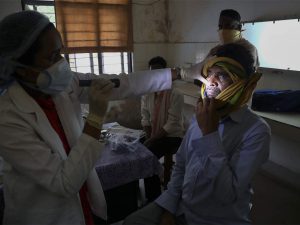As the company began producing reusable facial masks, some copper-enclosed masks were created, which have special antibacterial properties, such as the ability to fight germs. One of the special features of these masks is that they are intact and usable even after washing up to 30 times. Carla Coletto, a swimwear designer, said: “We realized that the process of making a swimwear is very similar to the process of making a mask, with many components and techniques complementing each other.”
To date, the Carla Coleto brand has produced more than 22,000 copper-enclosed masks and more than 15,000 medical gowns. They have a special water-repellent coating on top of them which helps to retain their anti-bacterial properties even after washing 30 times.
“During the epidemic, many things had to be considered together, equipment had to be reconfigured for the social gap, and we had to follow all the guidelines of the CDC, the disease control and prevention agency,” she said. As a result, Carla Coletto was able to run her own business and help others. Today, his organization is working collaboratively with various charitable centers on a variety of initiative projects. “A portion of the proceeds from the sale of our masks was donated to Fashion Girls for Humanity, and of course we have an initiative to make medical gowns, which we are continuing to work on,” she said.
In 2011, after a devastating earthquake in Fukushima, Japan, the non-profit organization Fashion Girls for Humanity was founded. In the ten years since its inception, its goal has been to raise funds for humanitarian initiatives and emergency services. After Kovid, all efforts were made to assist the medical staff. Mickey Higasa, the founder of the company, said: “We have decided to raise money so that we can pay the factory workers and then donate these medical gowns to the much needed hospitals and medical institutions. We look forward to working with Carla Colletto. ”
Rakala Coletto herself said that her factory would continue to do humanitarian work and that their factory would continue to produce them as long as personal protective equipment was needed.









